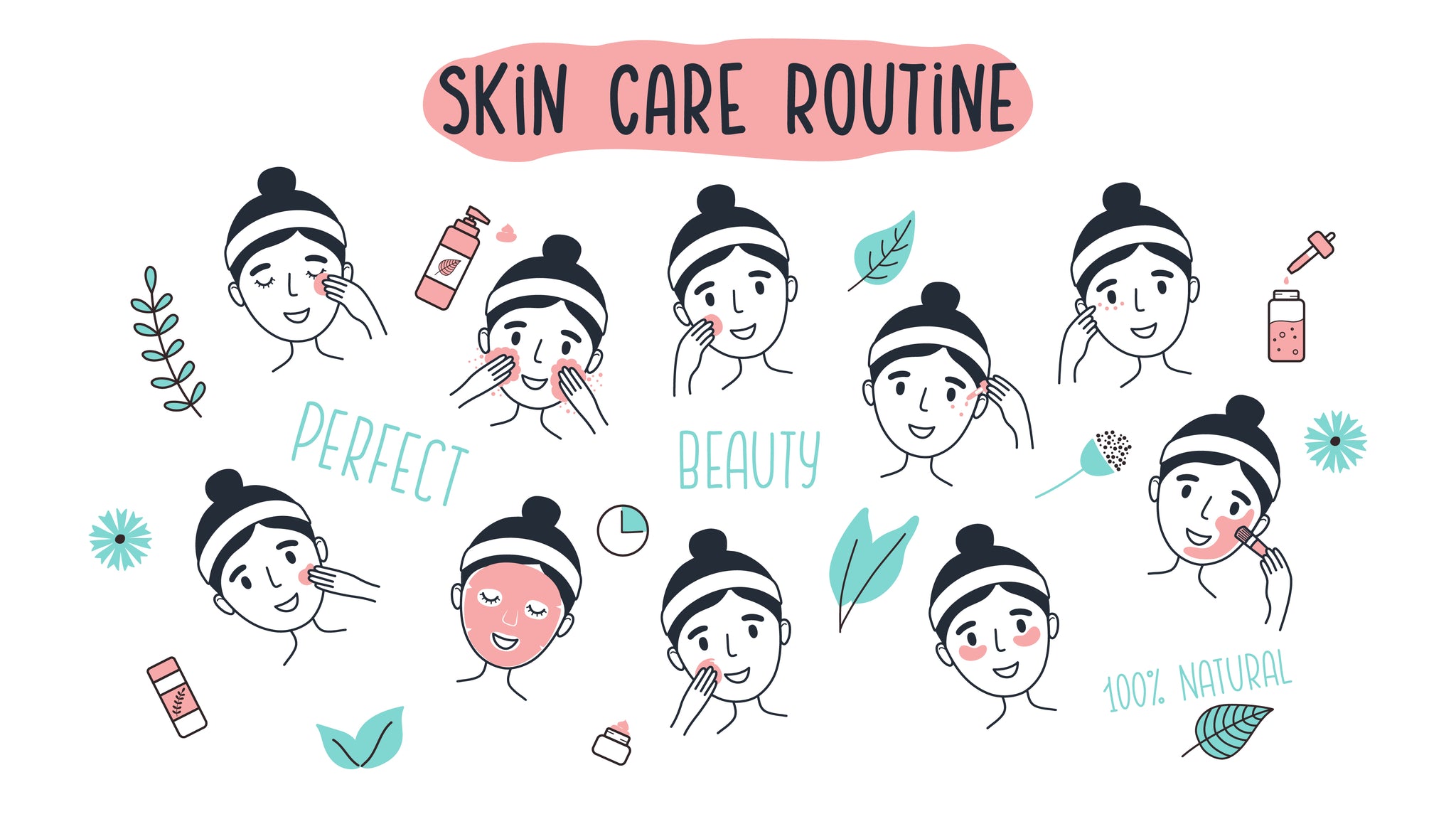
Your Skin Care Routine
The best skincare routine can vary from person to person depending on their skin type, concerns, and goals. However, there are some fundamental steps and principles that can guide you in creating an effective skincare routine. Here's a general guideline for a basic skincare routine:
-
Cleansing:
- Use a gentle, sulfate-free cleanser that matches your skin type (dry, oily, combination, or sensitive). Cleanse your face twice a day, in the morning and evening, to remove dirt, makeup, and excess oil.
-
Toning (Optional):
- Toning can help balance the skin's pH and remove any remaining impurities. Use a alcohol-free, hydrating toner if you choose to include this step.
-
Serum:
- Apply a serum that targets your specific skincare concerns. Common serums include vitamin C for brightening, hyaluronic acid for hydration, or retinol for anti-aging. Follow the product's instructions for application.
-
Moisturizing:
- Use a good moisturizer to keep your skin hydrated and lock in the benefits of the previous steps. Choose a product suitable for your skin type.
-
Sunscreen (Morning Routine):
- Apply a broad-spectrum SPF 30 or higher sunscreen every morning, even on cloudy days. Sunscreen is crucial to protect your skin from UV damage and premature aging.
-
Eye Cream (Optional):
- If you have concerns about the skin around your eyes, consider using an eye cream. Look for products with ingredients that target puffiness, dark circles, or fine lines.
-
Night Cream (Evening Routine):
- Use a richer night cream or moisturizer that is designed for nighttime use. These products often contain ingredients that promote skin repair and rejuvenation.
-
Exfoliation (1-3 Times a Week):
- Exfoliate to remove dead skin cells and promote cell turnover. You can use physical exfoliants (scrubs) or chemical exfoliants (like AHAs or BHAs), but be careful not to over-exfoliate, as this can irritate the skin.
Remember that consistency is key to achieving and maintaining healthy skin. It's important to select products that match your skin type and specific concerns. If you have more specialized concerns like acne, hyperpigmentation, or rosacea, it's a good idea to consult with a dermatologist for tailored advice and treatment options.
Also, introduce new products gradually to your routine, especially if you have sensitive skin, to minimize the risk of irritation or adverse reactions. Lastly, listen to your skin - if a product is causing discomfort or problems, discontinue use.
A good skincare routine is just one aspect of achieving healthy skin. A balanced diet, hydration, and a healthy lifestyle also play crucial roles in maintaining skin health.
Ref: https://www.healthline.com/health/beauty-skin-care/order-of-skin-care
